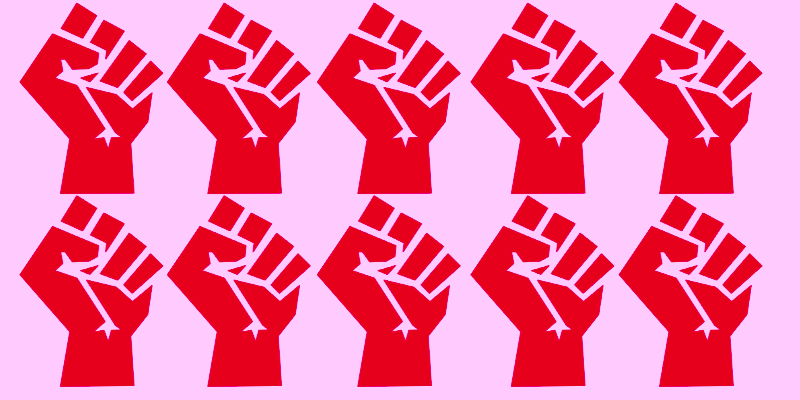One day while Bianca Guidetti Serra—a staffetta, or courier, for the Italian resistance during World War II—was delivering news and supplies to the anti-fascist partisan army in the Alps, she received a request from their commissar. Emanuele Artom was a small, thin young man—not as strong as his fellow resistance fighters. But he was a student and a gifted teacher, and was thus given one of the most important roles among the partisans: the commissar was in charge of the soldiers’ education and mental well-being. Emanuele asked Bianca to bring books the next time she made the long and difficult trek from Turin. He said to Bianca, “I think when it comes to rebuilding the country, they know nothing about parties, about trade unions, about democracy. We run the risk of things coming back to the way they were.”
Despite knowing that she would then have to ride with this heavy load up the steep Alpine switchbacks and through Nazi-contested land, Bianca readily agreed. She knew the importance of political education, particularly for her fellow Italians who had grown up under Mussolini’s Fascist regime, where the educational curriculum reflected the regime’s biased worldview to suppress resistance, causing many books and newspapers with dissenting or alternate viewpoints to be censored or banned.
Bianca remembered, too, the book that had a profound impact on her own political awakening. Her parents were left-leaning, but like so many other Italians, hid their views from their children for fear of retribution from Mussolini’s loyalists. But Bianca found a copy of Leon Trotsky’s autobiography My Life on her father’s shelf—and it opened her eyes to the thoughts and experiences of a revolutionary. This would inspire her first political acts a few years later when she organized friends to tear down propaganda posters to protest Mussolini’s Racial Laws that limited the rights of Jewish people in Italy. Later she read works quietly provided to her by her fellow partisans, including Marx’s writing on the power of the working class, which would then inspire her own efforts during the war to organize mass strikes around Nazi-occupied Italy.
That day Bianca returned home from her mission in the mountains and carefully chose a small library to bring on her next trip: books that she believed might inspire and inform the rag-tag group of young men who were risking their lives for the promise of a free Italy after the war—like she was. But Emanuele would never receive them. Days later he and others, including Bianca’s fiancé, were forced from their camp by a Nazi raid. Emanuele, not as physically fit as the others, was captured and killed.
No one walks into a movement fully formed, but we can all help create something powerful, one step at a time, through education and connection with community.
After the war, his memory would be honored by the publication of his diaries. In Italy this became essential reading about the experiences of Jewish partisans during the war. Only recently translated into English, it is now available under the title These Thoughts of Mine: Diaries of an Italian Jewish Partisan, January 1940–February 1944.
I draw from Bianca’s story under Nazi occupation in my narrative nonfiction book, Women of War: The Italian Assassins, Spies, and Couriers Who Fought the Nazis. In the four female protagonists in the book, political education appears as a key element to their path to join the anti-fascist resistance. Anita Malavasi, who grew up on a farm in the region of Reggio Emilia before moving to the city of Reggio, remembered her grandfather reading stories by Dostoyevsky and other Russian novelists to the children in the warmth and privacy of the barn—works she didn’t realize were considered highly subversive under the Fascist regime. “What did we know about politics?” Anita said about her generation of women in particular. “With Fascism, you could only read what target gave you and you didn’t even have the right to make comments.”
When she became active in the resistance, she joined a women’s group called the GDD, which had chapters across occupied Italy and focused on political education and organizing resistance support and actions. Through the education and discussion with these women, she had her own political awakening. “At that point we understood that we could change our future. We understood that we had to be more than partisans, that we had to acquire consciousness about our role in the resistance.” After Anita was arrested by Fascist officers under suspicion of involvement in the resistance, she escaped to the mountains where she fought with the partisan army until the end of the war.
Unlike others facing the same Nazi occupation in various countries, the Italians were not fighting to return to the life they had before the war. Rather, they were also engaged in reimagining the new Italy they wanted post-war—one in which they had political power and agency, more rights for workers and women, and freedom of thought and expression. It was only through political education that they could begin to conceive of—and fight for—this future.
But of course, Italian partisans were not the only revolutionaries to embrace the power of political education. This has been endemic to so many other movements for political and social change. In my book Power Hungry, I wrote about women in the Black Independence movement. From Freedom Summer, which had Freedom Schools teaching children and adults about Black history and excellence, as well as constitutional rights—to the Black Panther Party, which held required PE (political education) classes where they read and discussed Franz Fanon, Malcolm X, W.E.B. Du Bois, Richard Wright and others, education was also core to their understanding of, and dedication to, the racially and economically just future they were fighting for.
Occupy Wall Street, which was primarily an economic justice movement that began in 2011 with an occupation of Zuccotti Park near Wall Street in downtown Manhattan, had their own library and reading list that included The People’s History of the United States by Howard Zinn and America Beyond Capitalism by Gar Alperovitz. And more recently, a number of groups have put together more informal reading lists for the Black Lives Matter movement, which includes The New Jim Crow by Michelle Alexander, The Fire Next Time by James Baldwin, among many others.
No one walks into a movement fully formed, but we can all help create something powerful, one step at a time, through education and connection with community. To help create an even more robust list of books, I’ve asked other leaders from diverse specialties and communities, below, to share readings they believe are also instructive for this moment in history.
*
Darlene Okpo is the owner of Adanne Bookshop in Brooklyn that centers Black voices, joy, and liberation. Okpo says, “We’re more than just a shop, we’re a cultural and creative hub where community meets resistance, and reading is a revolutionary act….Political education is at the core of how we keep each other informed, grounded, and mobilized, and books have always been one of our greatest tools for that.”
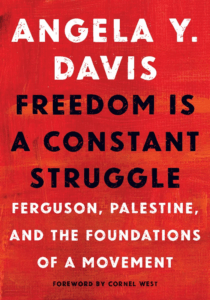
Freedom Is a Constant Struggle by Angela Y. Davis
Because liberation is global. This book connects Ferguson to Palestine and reminds us that movements are interconnected, and none of us are free until all of us are.
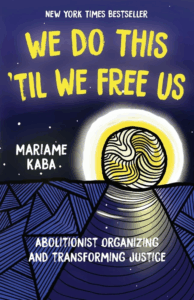
We Do This ‘Til We Free Us by Mariame Kaba
Because abolition is not a metaphor. Kaba gives us real language, real tools, and real hope for what justice can look like without cages.
*
Jacob A.C. Remes teaches labor history and disaster studies at NYU and is on the bargaining committee of Contract Faculty United – UAW, the largest union of private-sector, full-time, non-tenure track professors in the U.S.
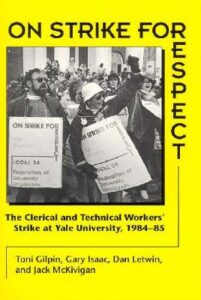
On Strike for Respect: The Clerical and Technical Workers’ Strike at Yale University, 1984-85 by Toni Gilpin, Gary Isaac, Dan Letwin, and Jack McKivigan
What can unions do when everything, from the state to the very structures of the workplace, are arrayed against them? This pamphlet of a book explains how to organize and win under what we now call neoliberalism, taking a successful strike by secretaries at Yale in the mid 1980s as its case study.
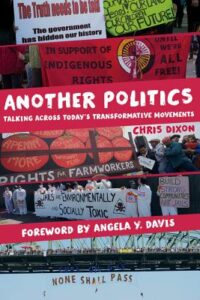
Another Politics: Talking Across Today’s Transformative Movements by Chris Dixon
Political theory from the bottom up; Dixon interviewed dozens of organizers in anti-racist, anti-authoritarian, and anti-capitalist movements about what they believed, what they did, and what they fought for.
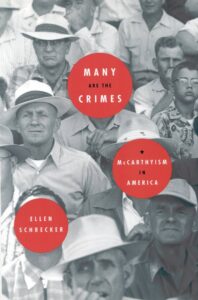
Many Are the Crimes: McCarthyism in America by Ellen Schrecker
A new red scare is breaking up interracial social movements under the cover of anti-antisemtism; what better time to read this definitive history of McCarthyism and how it worked as a public-private partnership to expel radical politics from mainstream society and domesticate the New Deal.
*
Julie Schweitert Colazzo, founder of Immigrant Families Together and co-author of Book of Rosie.

We Do This ‘Til We Free Us by Mariame Kaba
Some folks read Scripture; I read Mariame Kaba. While the focus of this book is about abolitionist practices, as much of Kaba’s wider body of work (both on and off the page) is, it’s a primer on how to imagine change and new systems and structures more broadly. At its core, it’s about why and how we build community, how we stitch networks of care and concern so that they have the tensile strength to survive hard moments, political and otherwise. You know…kind of like the moment we’re living now.
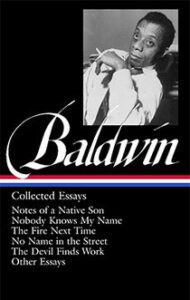
Collected Essays of James Baldwin published by the Library of America
There are lots of folks who’ve crossed the threshold who I wish could be with us today, and James Baldwin is chief among them. His writing in this collection is so utterly of the moment in which he lived, but it is also still timely. That could devastate a reader. But what will prevent them from tumbling into the abyss is Baldwin’s clear-eyed assessment of the American political condition—the human political condition—and his advice about what we do to live with that and become and do better.
*
Steff Reed is a musician, cultural organizer, and scholar whose work bridges the arts, political education, and liberation theology to mobilize communities toward healing, justice, and collective liberation.
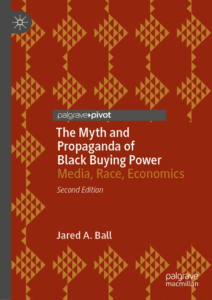
Myth and Propaganda of Black Buying Power by Jared A. Ball
This is a critical text that shatters neoliberal myths and illusions-elucidating the ways in which hegemonic Black capitalist myths are weaponized to pacify and neutralize the Black political imagination. Ball surgically dismantles one of the most enduring myths in Black political life—that consumer spending equals liberation—and in doing so, he clears the fog of capitalist propaganda to make room for organizing, material analysis, and actual movement-building rooted in class struggle and collective liberation.
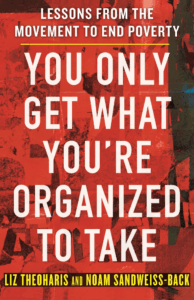
You Only Get What You’re Organized To Take by Liz Theoharis and Noam Sandweiss-Back
You Only Get What You’re Organized to Take is a powerful blueprint for how faith organizing must be tied to political education and collective class struggle. Liz Theoharis and Noam Sandweiss-Back offer a sharp, clarion call to action that connects moral vision with material demands—reminding us that collective liberation isn’t given, it’s taken through disciplined movement-building rooted in faith and justice.
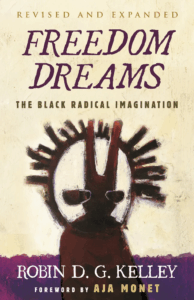
Freedom Dreams: The Black Radical Imagination by Robin D.G. Kelley
Freedom Dreams: The Black Radical Imagination is crucial reading for artists and cultural workers who see their craft as part of the collective struggle for collective liberation. This book invites readers to reclaim the Black radical imagination as a tool for world-building—reminding us that visionary art and collective dreaming are not just aesthetic acts, but revolutionary practices.
__________________________________
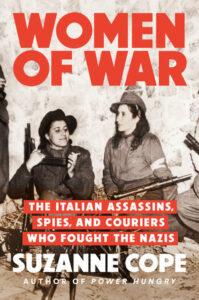
Women of War The Italian Assassins, Spies, and Couriers Who Fought the Nazis by Suzanne Cope is available from Dutton, an imprint of Penguin Publishing Group, a division of Penguin Random House, LLC.
